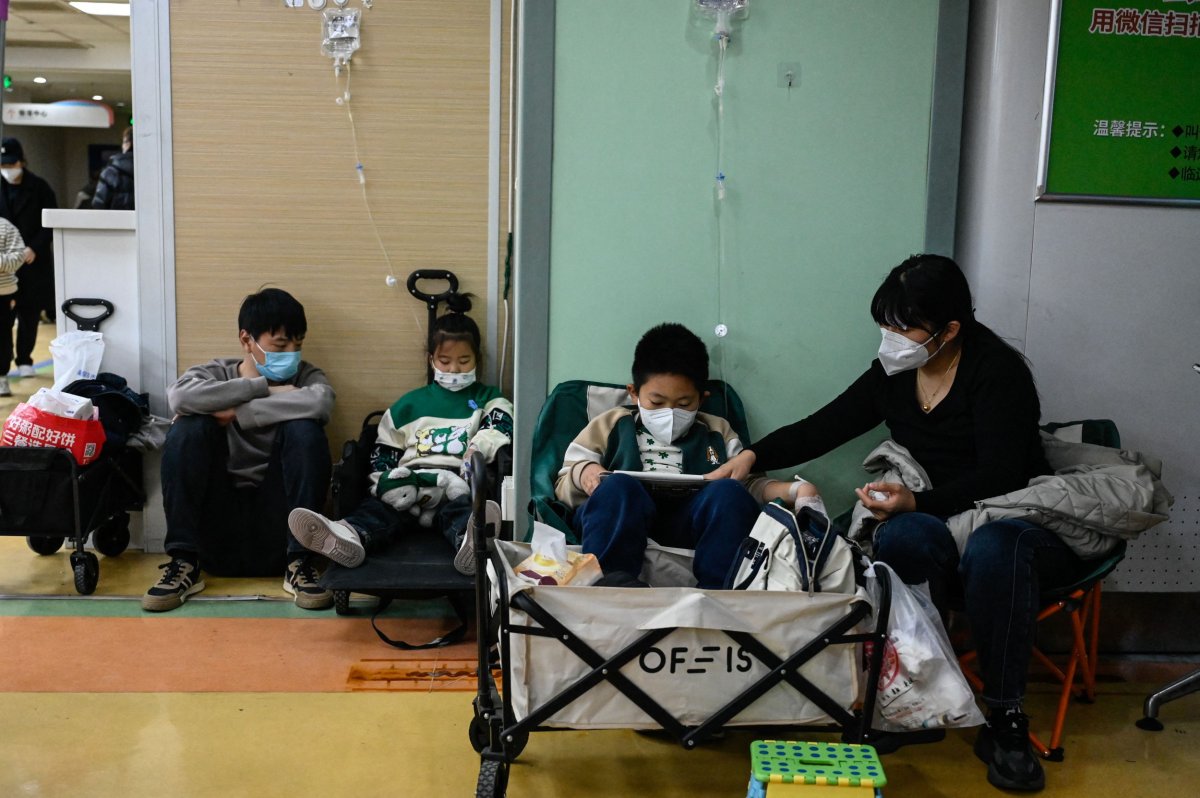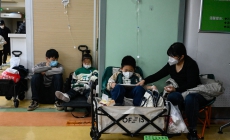-
Map Shows Spread of Pneumonia Outbreak Across China - November 24, 2023
-
A portion of Mulholland Drive, damaged by mudslides in winter storms, reopens - May 26, 2024
-
‘Maybe You Don’t Want to Win’ - May 26, 2024
-
Donald Trump Putting Law Enforcement in Danger: Attorney - May 25, 2024
-
Avoid the waters of these 5 L.A. County beaches this holiday weekend, public health officials say - May 25, 2024
-
Bawdy Comedy ‘Anora’ Wins Palme d’Or at Cannes Film Festival - May 25, 2024
-
Map Shows Heat Wave Zone Spread Into Five New States - May 25, 2024
-
Azusa police arrest suspected slingshot-wielding vandal - May 25, 2024
-
Donald Trump Hammers Judge Ahead of Jury Instructions - May 25, 2024
-
Sometimes U.S. and U.K. Politics Seem in Lock Step. Not This Year. - May 25, 2024
Map Shows Spread of Pneumonia Outbreak Across China
Parts of northern China are experiencing a dramatic increase in respiratory illnesses, particularly among children.
The Chinese national and local governments are not publishing infection numbers or other data on the outbreaks.
State-run CCTV news reported that in the capital of Beijing, hospitals have been operating at full capacity for over a month in response to this spike in infections. Beijing Children’s Hospital revealed that its internal medicine department is seeing more than 7,000 cases daily. Beijing Jingdu Children’s Hospital highlighted a significant rise in mycoplasma pneumonia infections, placing immense pressure on medical resources, with 90 percent of the hospital’s 300 beds occupied and long queues forming outside.

The situation is similarly dire in Tianjin, a coastal city just east of Beijing. Tianjin Children’s Hospital set a record on November 18, with 13,171 young patients visiting its outpatient and emergency departments in a single day, as reported by a local newspaper.
The crisis extends beyond these cities. Liaoning Province, located about 400 miles northeast of the capital, is also grappling with high case numbers. Taiwan’s FTV News quoted an employee at Dalian Children’s Hospital stating that only the emergency department was operational, with outpatient clinics no longer available.
China’s largest city, Shanghai, along with the central city of Wuhan, where SARS-CoV-2 was initially identified, and the southern city of Guangzhou, have all experienced surges in mycoplasma infections in recent months, according to Chinese media group Caixin.
Taiwan-based NOWnews cited local reports saying the southern autonomous region of Guangxi is also seeing overcrowded hospitals.
China’s vulnerabilities when facing total hospital capacity were noted during the country’s battle with widespread COVID-19 infections this year. After Beijing abruptly dropped all anti-virus controls in December, these issues came to the forefront.
The National Health Commission of China, on November 13, attributed the increase in pneumonia cases to the relaxation of COVID-19 restrictions earlier in the year, which may have facilitated the spread of various respiratory illnesses after an extended period of reduced exposure to people’s immune systems.

JADE GAO/AFP via Getty Images
The World Health Organization said yesterday the Chinese health authorities had demonstrated the spike in hospital visits in northern regions was caused not by a new type of virus but by regular seasonal illnesses, including the typically mild mycoplasma pneumonia, or walking pneumonia, respiratory syncytial virus, adenovirus, and influenza.
Beijing’s apparent reluctance to make information public has drawn comparisons between the current respiratory illness surge and the initial stages of the COVID outbreak.
The WHO had been requesting detailed data from China about these clusters of infections, including epidemiological and clinical information and laboratory results. The global body has said that it does not recommend any specific measures for anyone traveling to China at this time. It also noted that it advises against travel or trade restrictions based on the current information.
Uncommon Knowledge
Newsweek is committed to challenging conventional wisdom and finding connections in the search for common ground.
Newsweek is committed to challenging conventional wisdom and finding connections in the search for common ground.
Source link
































